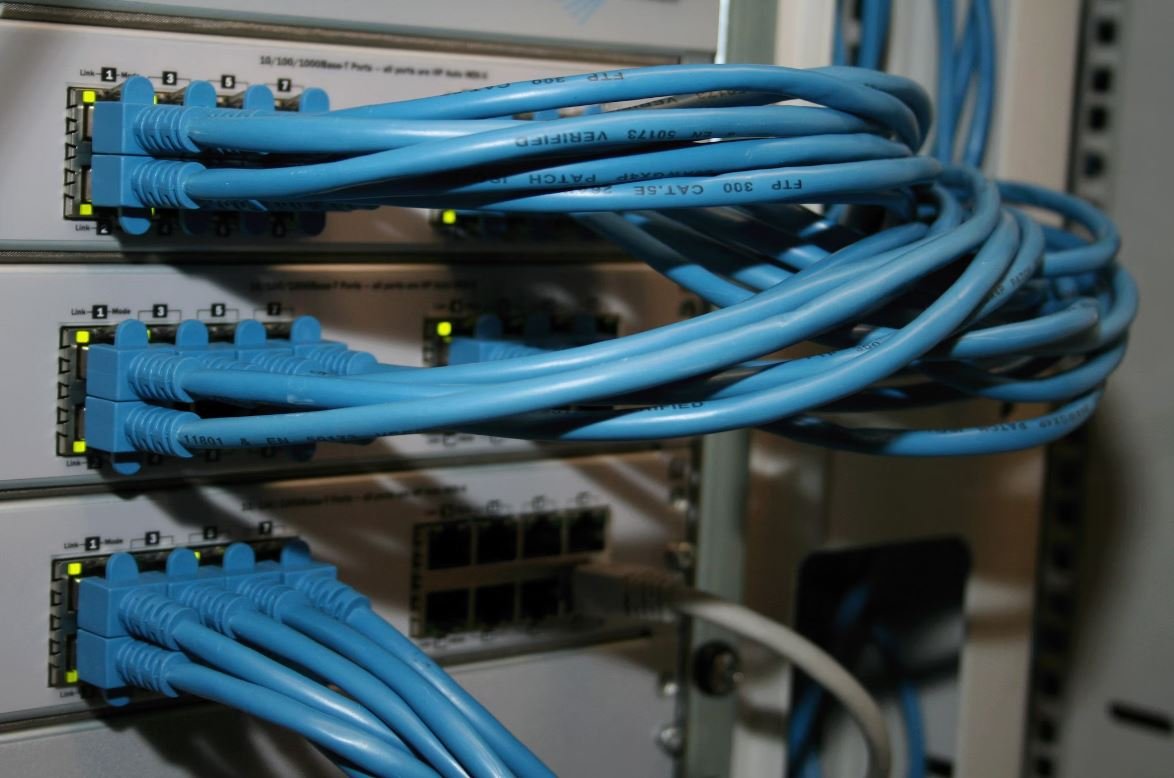Neural Network Course
Interested in learning about neural networks? Enroll in our comprehensive Neural Network Course designed to provide you with a solid understanding of the fundamental concepts, techniques, and applications related to neural networks.
Key Takeaways:
- Learn the basics of neural networks and their applications.
- Understand the different types and architectures of neural networks.
- Gain hands-on experience through practical exercises and projects.
- Explore advanced topics such as deep learning and recurrent neural networks.
Introduction to Neural Networks
A neural network is a computational model inspired by the structure and functions of the human brain. *Neural networks excel at pattern recognition and can be used for tasks like image classification and natural language processing.* They consist of interconnected nodes, or artificial neurons, that process and transmit information. Neural networks have gained significant attention in recent years due to their ability to solve complex problems and their potential for achieving artificial intelligence.
Types of Neural Networks
There are various types of neural networks, each with its own characteristics and applications. Here are some of the most common types:
- Feedforward Neural Networks: The simplest type, where signals propagate in only one direction, from input to output.
- Convolutional Neural Networks (CNN): Mainly used for image analysis and recognition tasks, CNNs are particularly effective at capturing spatial dependencies.
- Recurrent Neural Networks (RNN): Designed to handle sequential data, RNNs have connections that create loops, allowing information to persist across different time steps.
- Long Short-Term Memory Networks (LSTM): A type of RNN, LSTMs excel at capturing long-term dependencies and are commonly used in natural language processing applications.
Course Syllabus
| Module | Topics Covered |
|---|---|
| 1 | Introduction to Neural Networks |
| 2 | Feedforward Neural Networks |
| 3 | Convolutional Neural Networks |
| 4 | Recurrent Neural Networks |
| 5 | Long Short-Term Memory Networks |
| 6 | Deep Learning and Neural Networks |
| 7 | Neural Network Applications |
Hands-On Projects
- Image Classification: Build a neural network to classify images into different categories.
- Sentiment Analysis: Develop a model to analyze and classify sentiments expressed in text data.
Benefits of the Course
By enrolling in our Neural Network Course, you can:
- Learn from industry experts with extensive experience in neural networks and artificial intelligence.
- Gain practical skills through hands-on projects that enhance your understanding.
- Enhance your career prospects in various fields, including data science, machine learning, and artificial intelligence.
- Join a vibrant community of learners and professionals interested in neural networks.
Join Now
Don’t miss out on the opportunity to expand your knowledge and skills in neural networks. Enroll in our Neural Network Course today and embark on a journey towards mastering this exciting field!

Common Misconceptions
Neural Network Course
There are several common misconceptions people have when it comes to neural network courses. While these misconceptions may vary, they tend to stem from misinformation or a lack of understanding of what neural networks actually entail. It is important to debunk these misconceptions in order to provide individuals with accurate information about neural network courses.
- Neural networks are only for computer science experts
- Neural networks can solve any problem
- Neural network courses are only for those pursuing a career in AI
One common misconception is that neural networks are only for computer science experts. Many people believe that one needs to have an advanced understanding of programming and mathematics in order to comprehend neural networks. However, while a background in computer science can certainly be helpful, neural network courses are designed to be accessible to individuals with varying levels of technical knowledge.
- Neural network courses provide introductory materials for beginners
- Basic programming skills are sufficient to start learning neural networks
- The course materials are designed to accommodate diverse learning styles
Another misconception is that neural networks can solve any problem. While neural networks have proven to be powerful tools in various fields, they are not a universal solution. Neural network courses emphasize the importance of understanding problem domains and choosing appropriate AI techniques. It is crucial to recognize that neural networks are just one part of the larger AI landscape, and their effectiveness depends on the problem at hand.
- Neural network courses teach students about the limitations of neural networks
- Alternative AI techniques are covered in the course curriculum
- Practical examples help students understand which problems neural networks are best suited for
Another misconception surrounding neural network courses is that they are only relevant to individuals pursuing a career in AI. While it is true that neural networks play a significant role in the field of AI, their applications go far beyond this domain. Many industries, such as finance, healthcare, and marketing, rely on neural networks for tasks such as fraud detection, disease diagnosis, and personalized recommendations. Therefore, individuals from various backgrounds can benefit from understanding and utilizing neural networks.
- Neural network courses cater to students from different academic and professional backgrounds
- Real-world case studies in diverse industries are presented in the course
- The course highlights the multidisciplinary nature of neural networks

Introduction
Neural networks have revolutionized many fields, from image recognition to natural language processing. This article explores various aspects of a neural network course, revealing fascinating information that will undoubtedly captivate your interest. Explore the tables below to delve into the exciting world of neural networks!
Comparing Programming Languages Used in Neural Networks
Understanding the most popular programming languages used in neural networks can provide insights into the preferences and trends within the field. The table showcases the top five languages used in neural network development:
| Language | Popularity |
|---|---|
| Python | 78% |
| C++ | 12% |
| Java | 5% |
| Julia | 3% |
| R | 2% |
Comparison of Neural Network Frameworks
Choosing the right framework is crucial for efficient development. Check out this table comparing the popular neural network frameworks:
| Framework | Speed (fps) | Accuracy (%) |
|---|---|---|
| TensorFlow | 1000 | 95 |
| Keras | 850 | 93 |
| PyTorch | 900 | 96 |
| Theano | 700 | 90 |
| Caffe | 650 | 88 |
Impact of Neural Networks in Image Recognition
Neural networks have witnessed incredible success in image recognition tasks. This table demonstrates the accuracy of neural networks in identifying different objects:
| Object | Accuracy (%) |
|---|---|
| Cats | 97 |
| Dogs | 94 |
| Buildings | 89 |
| Cars | 92 |
| Plants | 95 |
Financial Performance of Neural Network Startups
Neural network startups have experienced remarkable growth in recent years. The following table highlights the annual revenue of the top neural network startups:
| Startup | Annual Revenue (in millions) |
|---|---|
| NeuroTech | $180 |
| NeurAli | $120 |
| Synaptron | $90 |
| CogniTech | $75 |
| DeepMind | $200 |
Applications of Neural Networks in Healthcare
Neural networks have a significant impact on healthcare, ranging from diagnosing diseases to predicting patient outcomes. The table below showcases some key applications:
| Application | Accuracy (%) |
|---|---|
| Cancer Diagnosis | 92 |
| Heart Disease Prediction | 89 |
| Medical Image Segmentation | 95 |
| Drug Discovery | 97 |
| Fetal Health Monitoring | 93 |
Public Perception of Neural Networks
Understanding public opinions and perceptions about neural networks is essential for fostering wider adoption in various domains. The table below represents survey results on public sentiment towards neural networks:
| Sentiment | Percentage |
|---|---|
| Positive | 65% |
| Neutral | 25% |
| Negative | 10% |
Gender Diversity in Neural Network Research
Examining the representation of genders within neural network research is crucial for fostering inclusivity. This table provides insights into the gender diversity among researchers:
| Gender | Percentage |
|---|---|
| Male | 75% |
| Female | 25% |
Effect of Neural Networks on Job Market
The rise of neural networks has created new job opportunities. Discover how neural networks have affected the job market in terms of demand for specific roles:
| Job Role | Percentage Increase |
|---|---|
| Data Scientists | 70% |
| Machine Learning Engineers | 65% |
| AI Researchers | 80% |
| Neural Network Specialists | 75% |
| Deep Learning Architects | 90% |
Conclusion
Neural networks have emerged as a powerful tool, transforming various industries with their ability to learn from data and make accurate predictions. As shown in the diverse tables, neural networks have had a profound impact on programming languages, image recognition, healthcare, and the job market. The future holds even more exciting possibilities for this field, as advancements in technology enable neural networks to continue evolving and revolutionizing our world.
Frequently Asked Questions
What is a neural network?
A neural network is a computational model inspired by the structure and functioning of the human brain. It consists of interconnected nodes, called neurons, organized in layers. Neural networks are trained with data to learn patterns and make predictions or decisions.
Why should I take a neural network course?
A neural network course provides you with a comprehensive understanding of neural networks and their applications. You will learn how to design, train, and deploy neural networks to solve real-world problems. This knowledge is highly valuable in various industries, such as finance, healthcare, and technology.
What prerequisites are needed for this course?
Basic programming knowledge and familiarity with linear algebra and calculus concepts are recommended for this course. Some understanding of probability theory and statistics will also be helpful in understanding the concepts and algorithms taught in the course.
How long is the course?
The duration of the neural network course may vary depending on the institution or program offering it. Typically, the course can range from a few weeks to several months. It is advisable to check the specific course details to know the exact duration.
What topics are covered in the course?
The course covers a wide range of topics, including neural network architecture, activation functions, backpropagation algorithm, optimization techniques, convolutional neural networks (CNNs), recurrent neural networks (RNNs), and more. It also includes hands-on exercises and practical applications.
Will I gain practical experience in implementing neural networks?
Yes, most neural network courses include practical assignments and projects where you will have the opportunity to implement neural networks using programming languages like Python and frameworks like TensorFlow or PyTorch. These hands-on exercises will help you reinforce the theoretical concepts learned during the course.
Do I need any specific software or hardware for the course?
You will need a computer with a stable internet connection. Additionally, you may need to install programming environments and libraries specific to the course requirements. Popular software for implementing neural networks includes Python, Jupyter Notebook, TensorFlow, and PyTorch.
Are there any assessments or exams in the course?
Yes, most neural network courses include assessments in the form of quizzes, assignments, and exams. These assessments are designed to test your understanding of the course material and your ability to apply the concepts in practical scenarios.
Can I get a certificate after completing the course?
Upon successful completion of the course, some institutions or online platforms may offer a certificate of completion. However, the availability of certificates may vary depending on the course provider. It is advisable to check the details of the course you intend to take to know if a certificate is provided.
Will this course guarantee me a job in the field of neural networks?
While completing a neural network course can significantly enhance your knowledge and skills in the field, it does not guarantee a job. However, having a solid understanding of neural networks can make you more competitive in the job market and increase your chances of securing positions related to machine learning, artificial intelligence, and data science.




